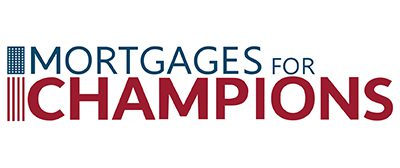By Laurie Sutton, Mortgage Finance School
The bursting of the real estate bubble, the mortgage fraud crisis and the downturn of the economy in 2008 had one small silver lining. It helped rid the mortgage industry of many unqualified and even unscrupulous mortgage loan officers.
There have been several changes within the industry since then, and as a result, anecdotal evidence as well as statistics from the Department of Labor indicates a dramatic drop in the number of loan officers since 2008.
Residential Home Funding president Tom Marinaro, a mortgage industry veteran who has worked as a mortgage loan officer and executive within the industry for more than two decades, has seen the substantial fall-off in the number of mortgage professionals in the New Jersey market. Marinaro says that mortgage professionals will be in high demand over the next several years as the real estate market rebounds, and that his firm is in hiring mode, actively recruiting new professionals to the industry. New hires include recent college graduates as well as career-changers.
To support recruiting efforts, Residential Home Funding, one of the largest mortgage lenders in New Jersey and in the top 100 nationally, recently created a “Mortgage 101” introductory course. “The goal of our Mortgage 101 course is to educate as many people as possible about the opportunities for a career as a mortgage loan originator, and what it takes to succeed,” said Marinaro. “Through our course, we hope to encourage the best and brightest to pursue a career within the lucrative and stimulating mortgage industry, and to provide a solid foundation for anyone who goes on to attend the preliminary classes as part of the mortgage licensing requirements.”
Preliminary mortgage courses are now required, as part of the Secure And Fair Enforcement (S.A.F.E.) Mortgage Licensing Act, which was passed by Congress in the wake of the mortgage crisis. The SAFE Act established national and state licensing qualifications for those offering mortgage loan services, including preliminary education classes and a licensing test. Mortgage license candidates are required to complete both federal and state specific preliminary education.
To this end, Mortgage Finance School was founded earlier this year, and recently approved by the National Mortgage Licensing System to teach the required preliminary education.
To understand the need for coursework, as well as the mortgage career opportunities available and the type of person needed, it’s important to explain where the industry came from over the last five years. Pre-2008, just about anyone could hang a shingle and claim they were a mortgage loan officer. This made it difficult for those doing the job the right way — the experienced mortgage loan officers who actually had expertise and training, knew the ins and outs, and could expertly guide a new home buyer through the maze of the mortgage process. Many of these mortgage loan officers – called originators or MLOs – wrote questionable loans, and were part of the problem when the real estate market fizzled.
Prospective mortgage loan originators have to take government-mandated pre-licensing courses at a facility that has been approved through the National Mortgage Licensing System. Once the coursework is completed, MLO candidates are then required to pass the mortgage originator exam. Those who pass the test(s) will be eligible to apply for a license with the respective state(s). The state regulator will review the applications and determine if the individual meets the specific requirements. The approval is mandatory before a mortgage loan originator can write a mortgage loan for a consumer.
Mortgage Finance School, based in Parsippany, N.J., is an NMLS-approved school that scores high when considering key factors for choosing a preliminary education facility. It offers courses not only for New Jersey licensing, but for New York and Pennsylvania as well.
Its instructors work within the mortgage industry and have real-world knowledge to share. In fact, three of the four instructors are licensed mortgage originators. Because the instructors are working in the mortgage and real estate industries every day, they are able to integrate instruction on the new rules with practical applications and examples from their real-world experience.
Courses are offered online, as well as live. Once looked at as an impediment in the education process, online and webinar-based courses are now an everyday part of many educational programs. It’s not for everyone, but it’s good to know that your provider has the capability to deliver courses in a variety of formats.
“Not only do these courses fully prepare students to pass the federal and state required licensing exams,” said Marinaro. “They also are designed to give them the tools to become successful loan officers at a time when they are really indispensable.”
According to a Bloomberg News report, sales of previously owned homes jumped in July to the second-highest level in more than six years as buyers rushed to lock in mortgage rates. Purchases grew 6.5 percent last month. Sales were the strongest since a government tax credit temporarily boosted demand in November 2009, and second-highest since March 2007.
“It is much more difficult to become a mortgage loan originator since 2008 and this fact has created tremendous opportunities for employment in the mortgage industry to those who are willing to invest their time and energy,” says Marinaro.
# # #
About the Author: Laurie Sutton is the Curriculum Coordinator for Mortgage Finance School, a leading provider of preliminary and continuing mortgage education . Mortgage Finance School is headquartered in Parsippany, N.J. Sutton can be reached at lsutton@mortgagefinanceschool.com or at 973-947-8350.

